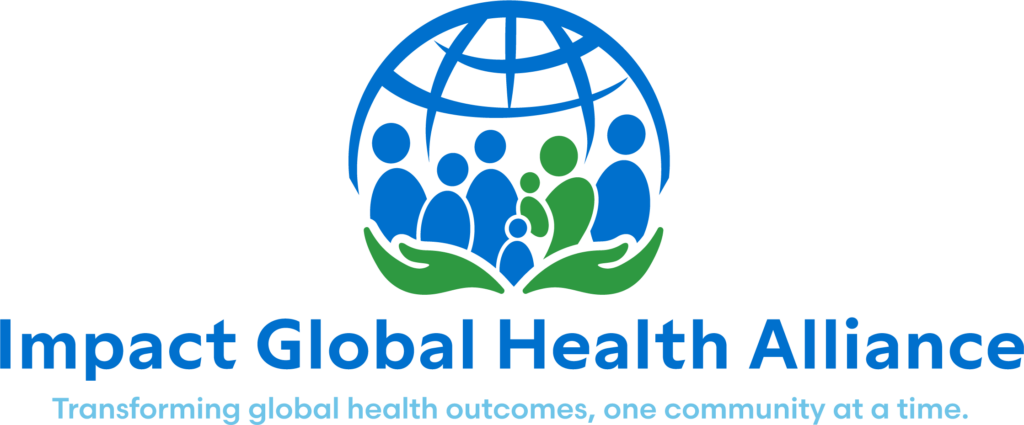Last year, Doña Catarina, a community health worker in Calhuitz, Guatemala, sat down with a group of volunteers to share her experience working with Impact Global Health Alliance. For the past five years, Doña Cata (as she is affectionately called) has worked as a Community Facilitator, which is a key role in our Care Group model. Care Groups are a cascade of community health volunteers, starting with an Educator at the top.
The Educator meets with the Community Facilitators once a month to teach them about different health topics related to the health issues present in the community. Each Community Facilitator is responsible for covering assigned sectors of the community. After she meets with the Educator, she takes the health information she learned to share with representatives of each of the sectors for which she is responsible. Those women then take that information back to their neighborhood, where they share it with their neighbors. In this way, community members get involved in the health and well-being of their communities and learn to take care of one another.
Doña Cata: For me, it’s a pleasure to work here because the Casa Materna has helped the pregnant women in our community. When women choose to stay at home for deliveries, it’s very dangerous because we don’t have all the things that we need. Whereas at the Casa Materna, we have things that help us, like trained staff, clean facilities, and medical supplies to manage emergencies.
I love working with mothers. We have Care Groups where the Educators teach us about a topic, and then we as Community Facilitators teach the Communicators who teach their neighbors. The women are really grateful for this service because they say they don’t always know the best foods to feed their children, and as a result their health declines and they get sick. We teach mothers about nutrition, pneumonia, diarrhea, and hygiene and sanitation. For example, in the past, women wouldn’t feed their babies colostrum, but through the Care Groups, we’ve been able to re-educate mothers about the importance of colostrum and exclusive breastfeeding. The women are always grateful for the help from the Casa Materna and look forward to participating in the Care Group meetings every month.
In addition to the Care Groups, there is another group that meets that is made up of mothers who have malnourished children. We meet every week at a different mom’s house to teach them how to cook nutritious food to help their children regain their health.
All of the Community Facilitators – there are six of us at the Casa Materna in Calhuitz – we all come to the Casa Materna every month for our health chats and also to share vital events updates to help the project track births, deaths, new pregnancies, and migration. So, every month we update the vital events so that we know what is happening in our community.
As a mother, I am grateful for Impact Global Health Alliance Global and for the volunteers that come to our communities. Every time a group comes, they bring medical supplies that are very needed. For instance, we didn’t use to have an ultrasound machine or a nebulizer until the volunteers brought one. In the past, mothers would have to travel all the way to the hospital for these services, but now they can come to the Casa Materna.
Thanks to women like Doña Cata, we have been able to reach thousands of community members with vital, lifesaving health information. We’re grateful for all the individuals that contribute to the success of our projects around the world.
Help us do more of this work now:
- https://www.curamericas.org/donate/
- Invite your friends to learn more – https://www.curamericas.org/email/





